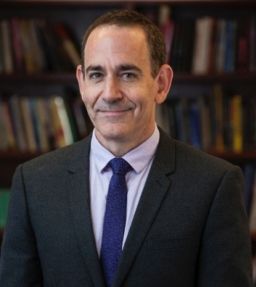Editor’s Note: Tim Naftali is a CNN presidential historian and clinical associate professor of history and public service at New York University and was the founding director of the Richard Nixon Presidential Library and Museum. A biographer of George H. W. Bush, he is currently working on a new history of the Kennedy presidency. Unless otherwise noted, facts here reflect research from that project. The opinions expressed in this commentary are his.
Story highlights
Tim Naftali: First ladies have access to classified material
The catch is they're not subject to background checks, he says
In the summer of 1963, Jacqueline Kennedy wrote to tell National Security Adviser McGeorge Bundy that she didn’t need to receive the intelligence community’s highly classified “Weekly Intelligence Summary” any longer.
“It just depresses me to look at that White & Green cover,” she explained as to why she hadn’t been keeping up with it, “and think of all you have to cope with.”
She had started receiving classified reports after October 1962 when both the Cuban missile crisis and, because of her interest in India, the Sino-Indian war had caught her attention.
A fan of Harvard professor John Kenneth Galbraith, Kennedy was less interested in reading these reports as Galbraith was leaving his post in the summer of 1963 as US ambassador in New Delhi. Nevertheless, she would continue to request classified material on various subjects – British Prime Minister Harold Macmillan, for example – until Dallas.

With all the attention on former first lady Hillary Clinton’s handling of classified information at the State Department and the possibility that Melania Trump might become first lady in 2017, it might be a surprise to some readers that historically, FLOTUS has had access to classified materials without ever having to get a security clearance.
Views on Election 2016
The first lady has access to secrets at the discretion of POTUS, the president of the United States. And the president has enormous authority over the use and distribution of the nation’s secrets.
Under our system of government, the president has a “need to know” (the rationale for sharing classified information) anything produced by the US government simply because he is the elected head of state and commander in chief. Should he win on Tuesday, Donald J. Trump will not need to undergo any kind of security background check to see anything he wants – including the secrets of previous administrations – after taking the oath of office on Inauguration Day,.
The White House, though our most famous office building and residence for the first family, is also, in a sense, a classified vault. Presidents can, and have, taken classified materials to bed to read. They can leave them on the sofa and on the kitchen table without worrying that they are violating US security.
The first lady resides in this bubble. And though Jackie Kennedy may be an outlier in her access to and interest in foreign policy documents, any first lady may see them with the president’s permission.
The historical record shows that not all first ladies have availed themselves equally of this opportunity. Unlike Jackie Kennedy, there is no evidence that Lady Bird Johnson received a weekly written classified briefing.
According to archivists I have contacted at the LBJ Presidential Library, the only classified documents in her office files are the biographies produced of foreign leaders, so that she would be better prepared to meet them. However, as she makes clear in her diary, President Lyndon Johnson discussed policy with her and she overheard many of his telephone calls.
As we can hear on the publicly accessible Nixon tapes, however, Lady Bird’s successor Pat Nixon, rarely, if ever, played the same kind of role as a sounding board for her husband. Moving ahead a bit, it is my understanding that Barbara Bush opted not to see any classified information, perhaps because of her experience as the wife of a CIA director.
We should leave to Secretary Clinton’s future biographers any speculation about what impact, if any, living in the White House as first lady had on how she later chose to handle her office communications at State. Indeed, it is not clear what classified material, if any, she saw as first lady.
Nevertheless, we should consider her unique experience and position. Hillary Clinton is the first of the first ladies – any of whom could have received classified materials because of her husband – to then move on to a formal national security position, where she would receive classified information because of her own “need to know.”
And this takes us to Tuesday. If a bunch of states decisively turn his way, Donald J. Trump could soon be determining Melania’s need to know in the White House.
But what about Bill Clinton’s access to information should Hillary Clinton’s so-called “blue wall” hold? He would not only be this country’s first “first mate” or “first spouse,” but he would also be the first former president to return to the White House as the partner of a new president.
Get our free weekly newsletter
Indeed, of the four people who have a real chance to replace the Obamas at the White House, Bill Clinton is the only one who will have access to future classified materials regardless of the outcome of the 2016 election. Former presidents retain for life their “need to know” over whatever they produced as president and, by convention since the 1950s, they are given classified briefings by their successors.
Apparently, 92-year-old George H. W. Bush stopped getting regular intelligence briefings only two years ago, at his request. But as of January 20, Hillary would have to decide what new secrets Bill will need to know. That might be an interesting discussion.











